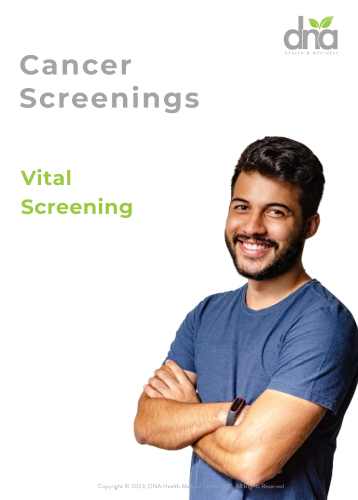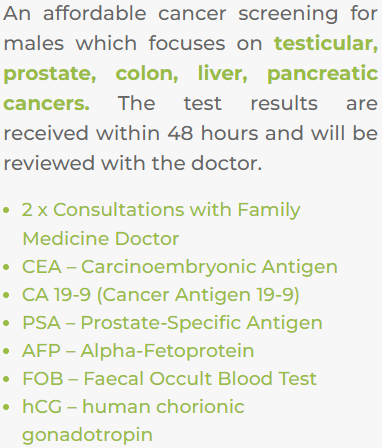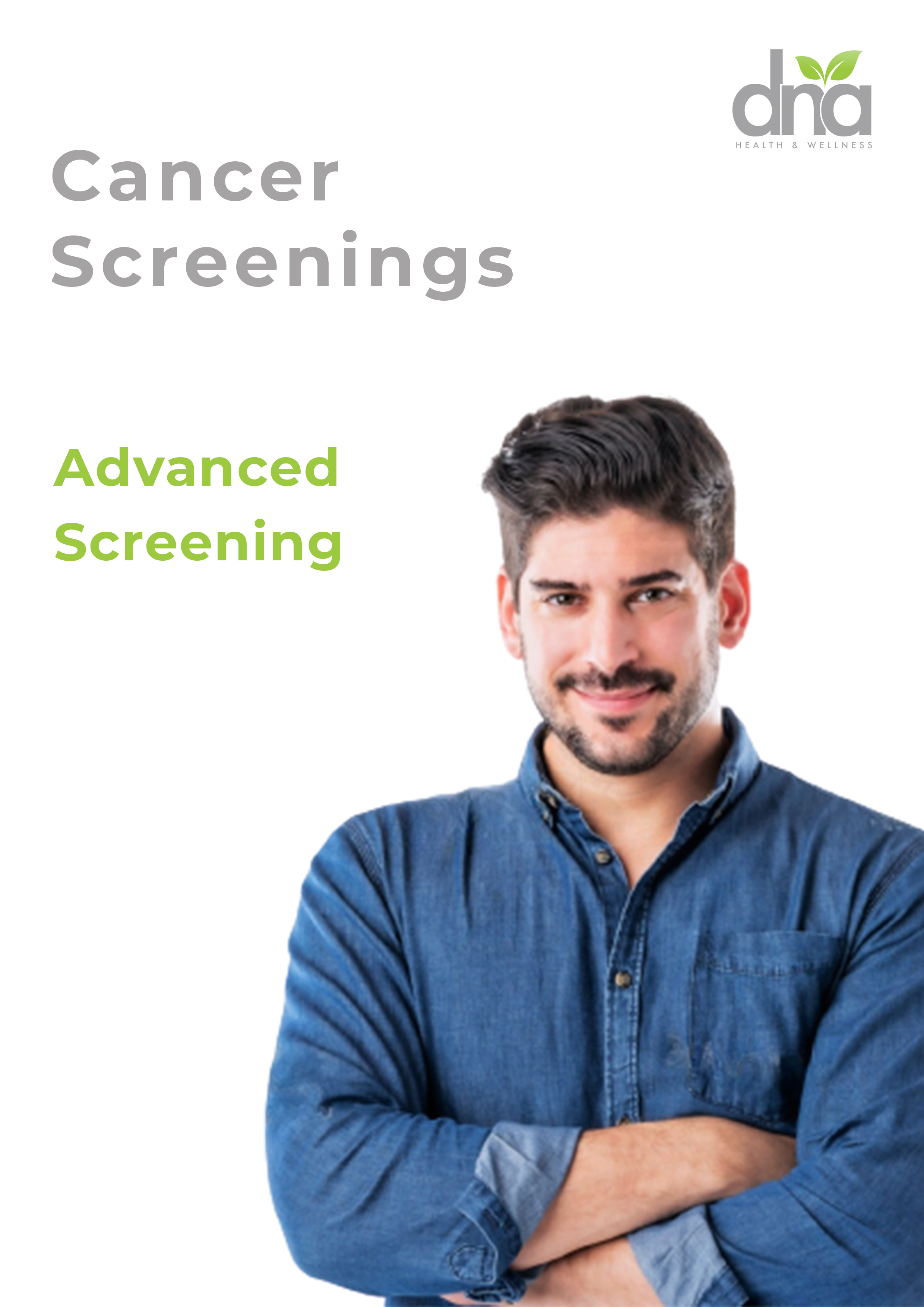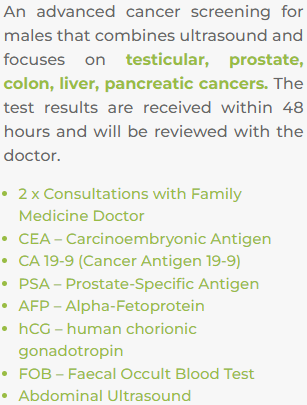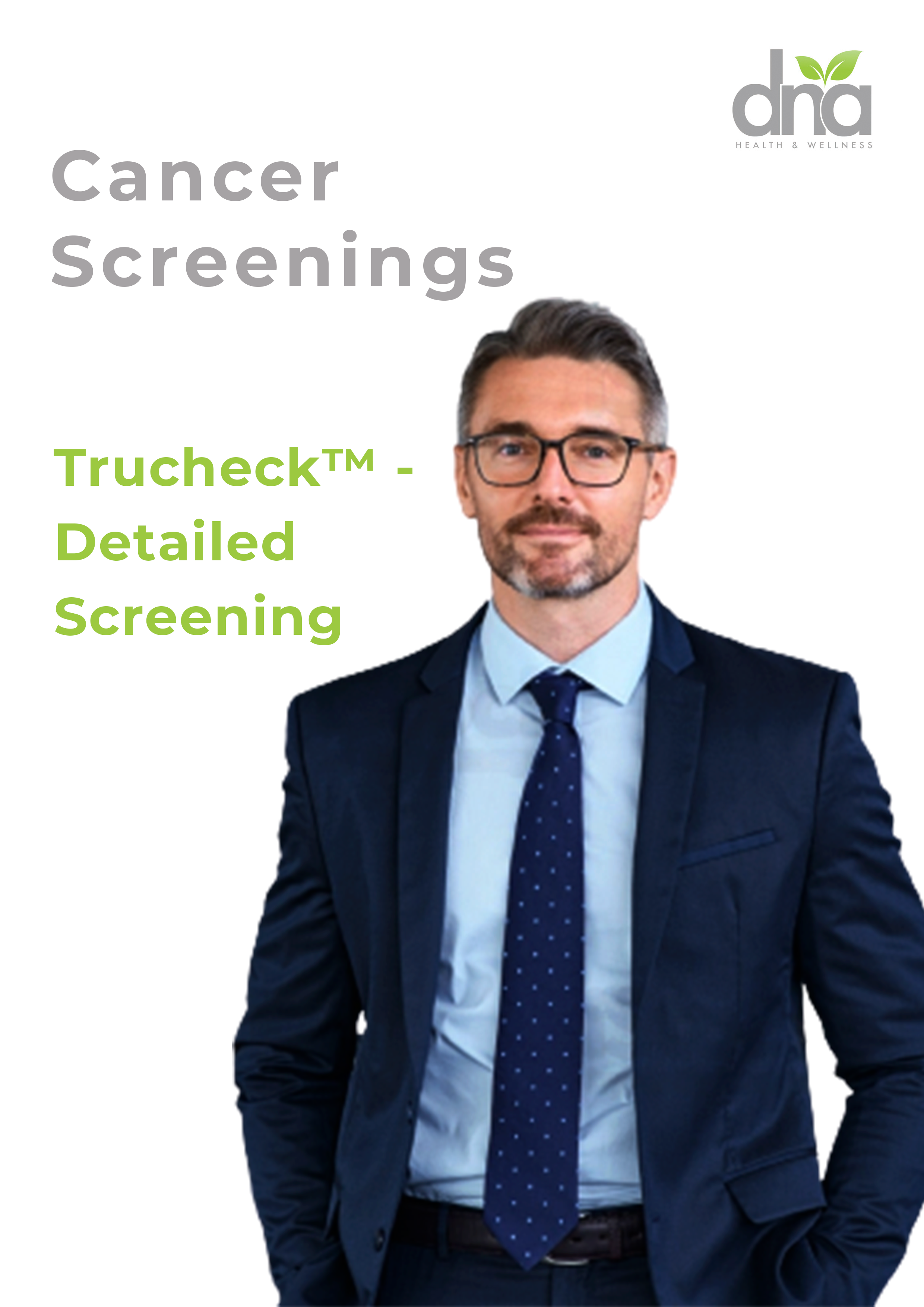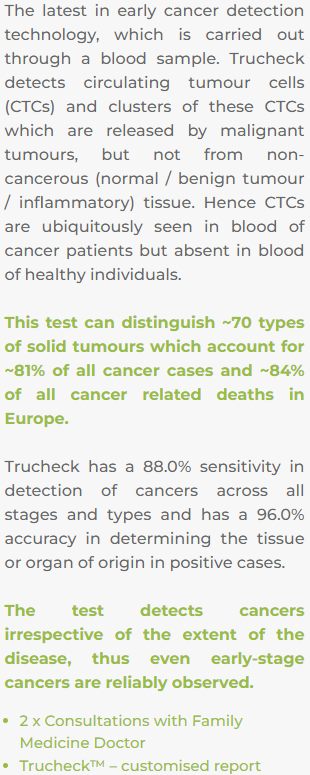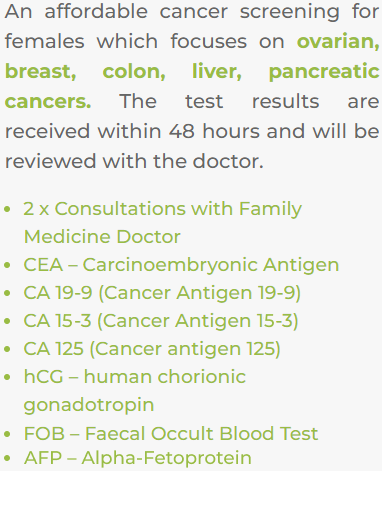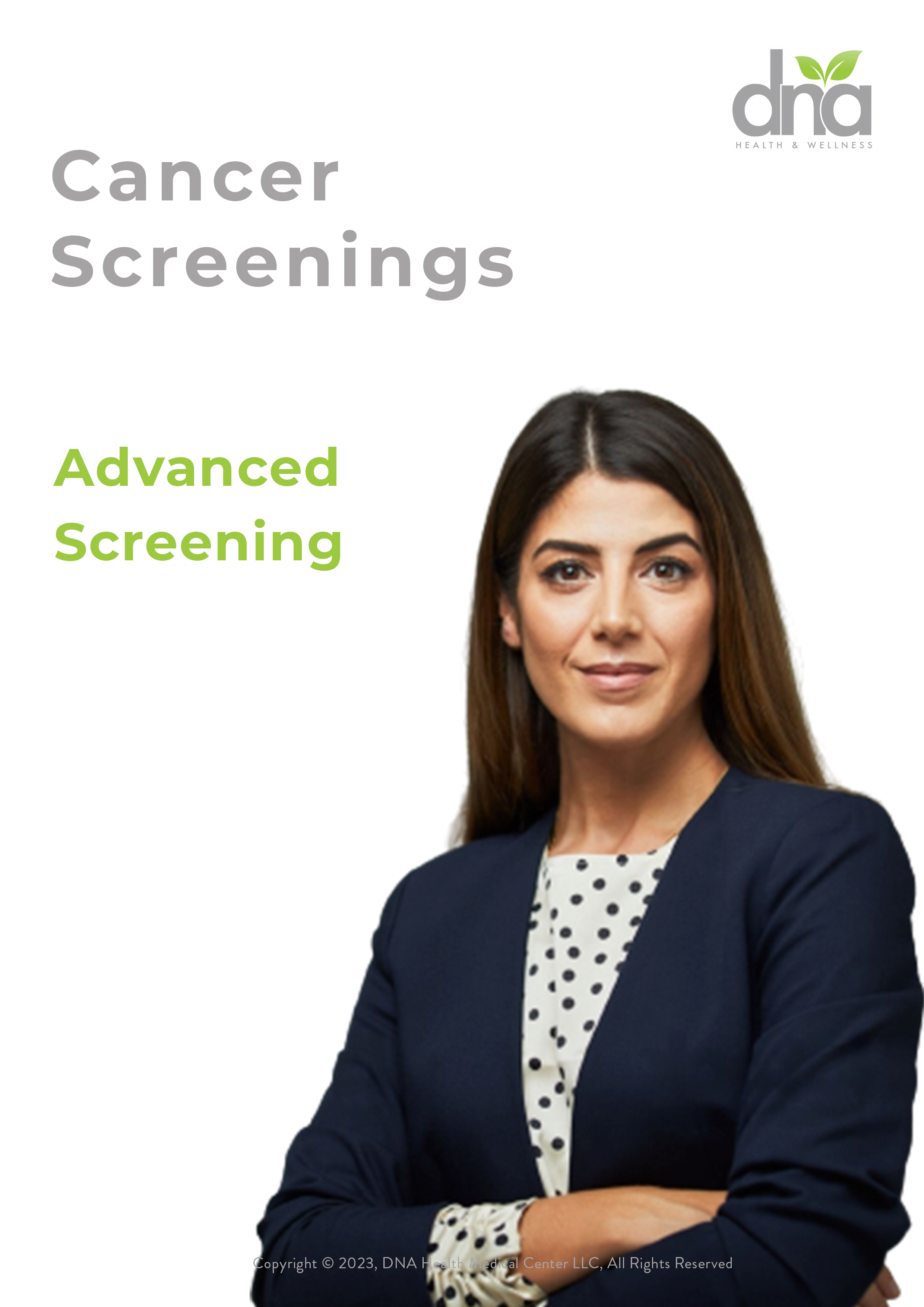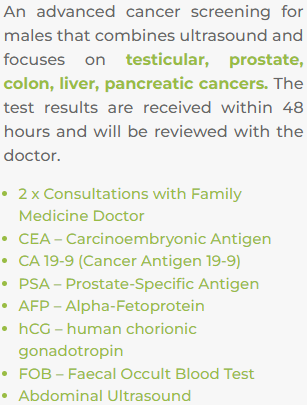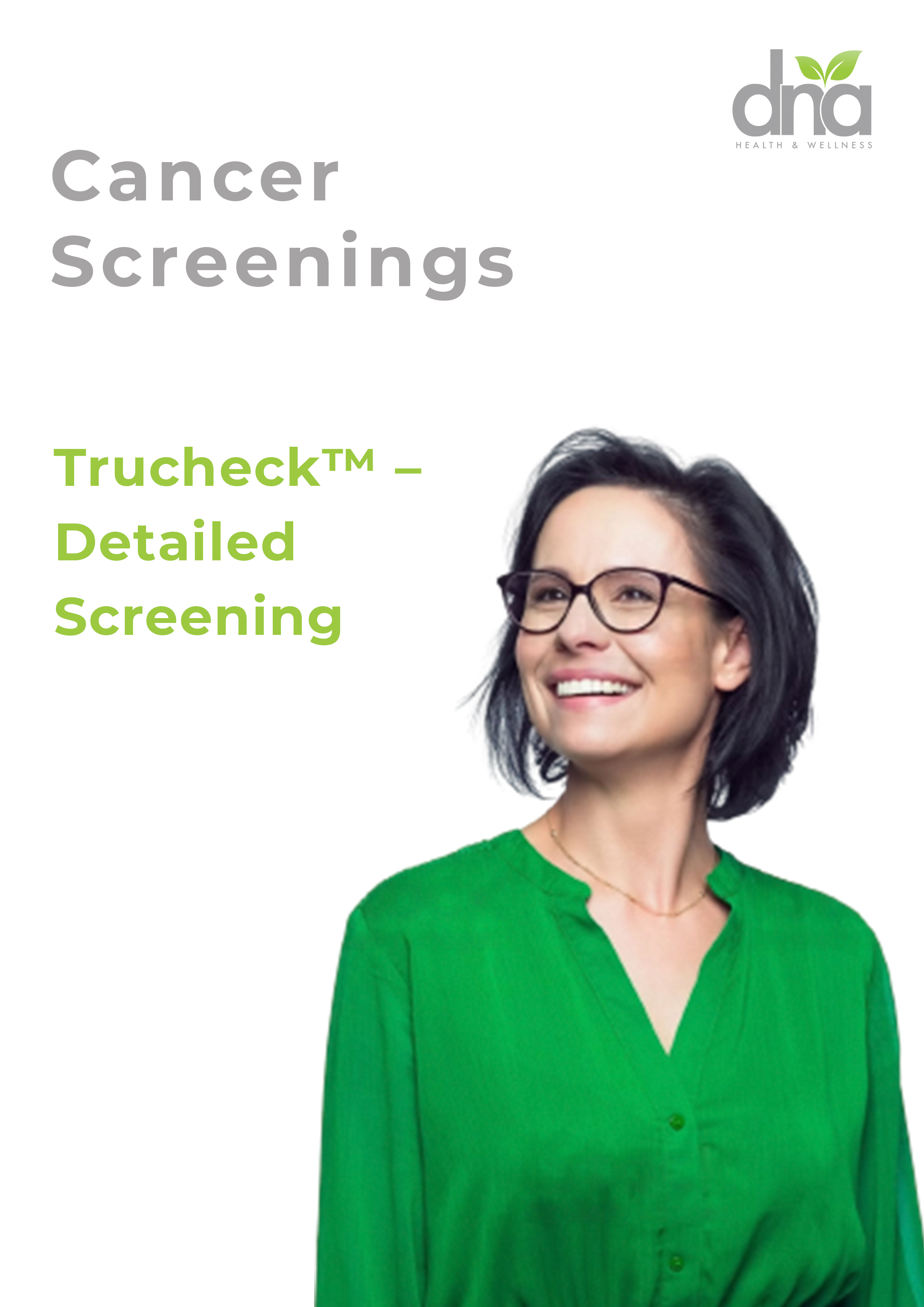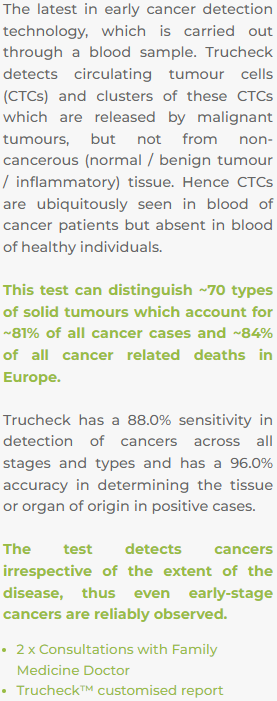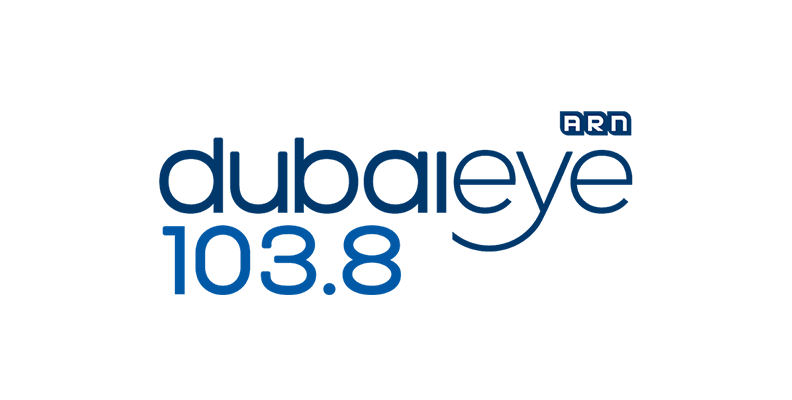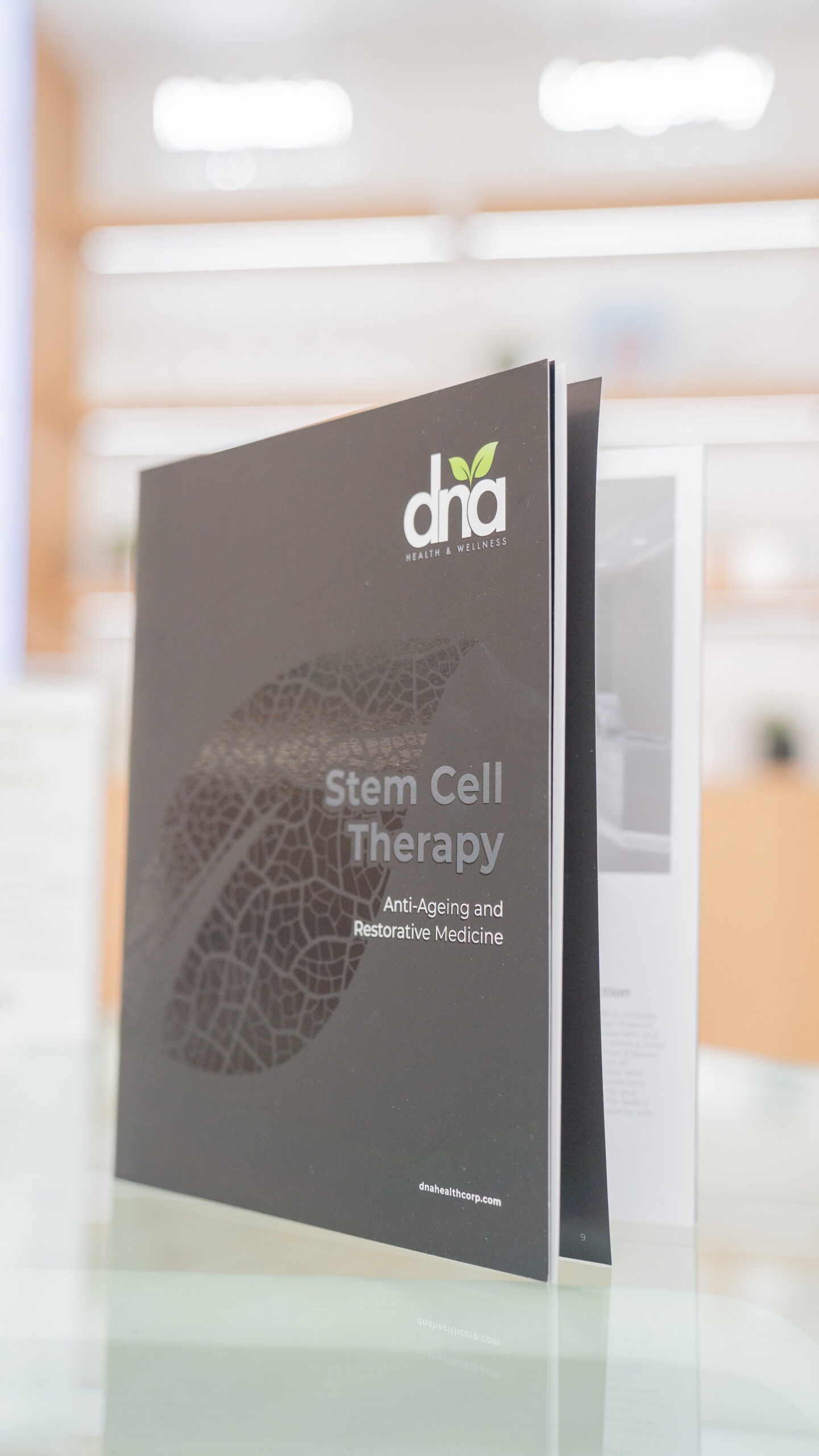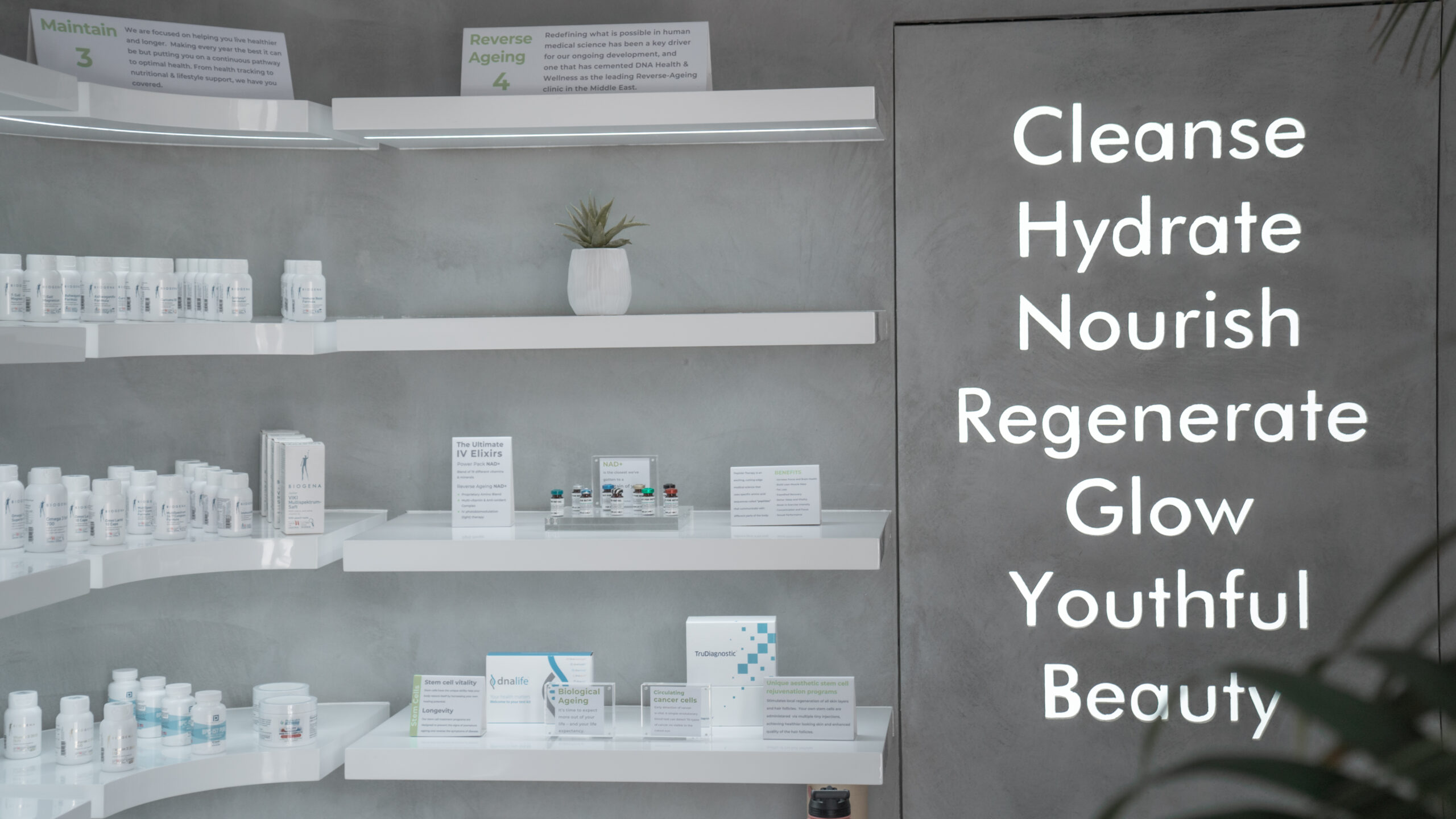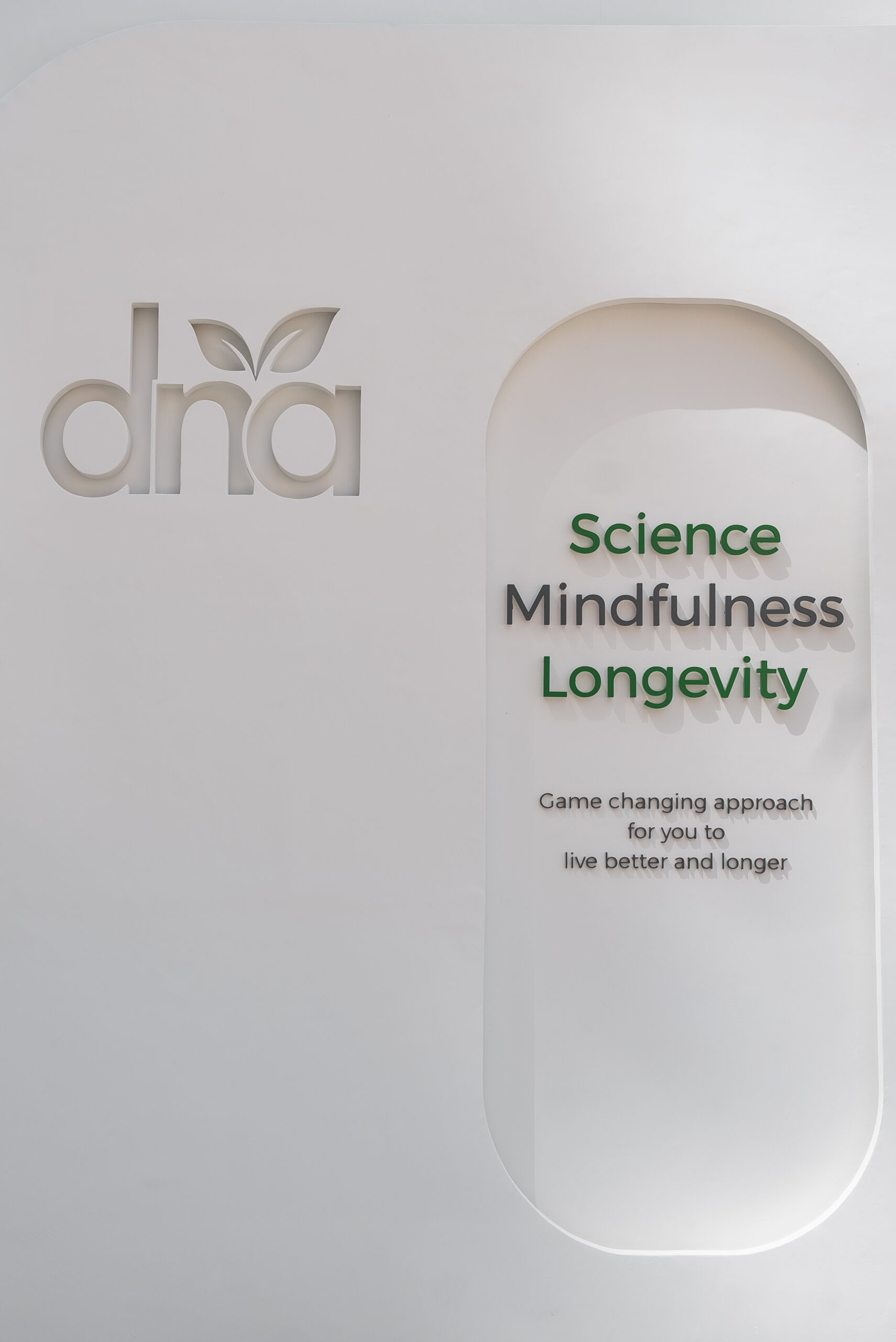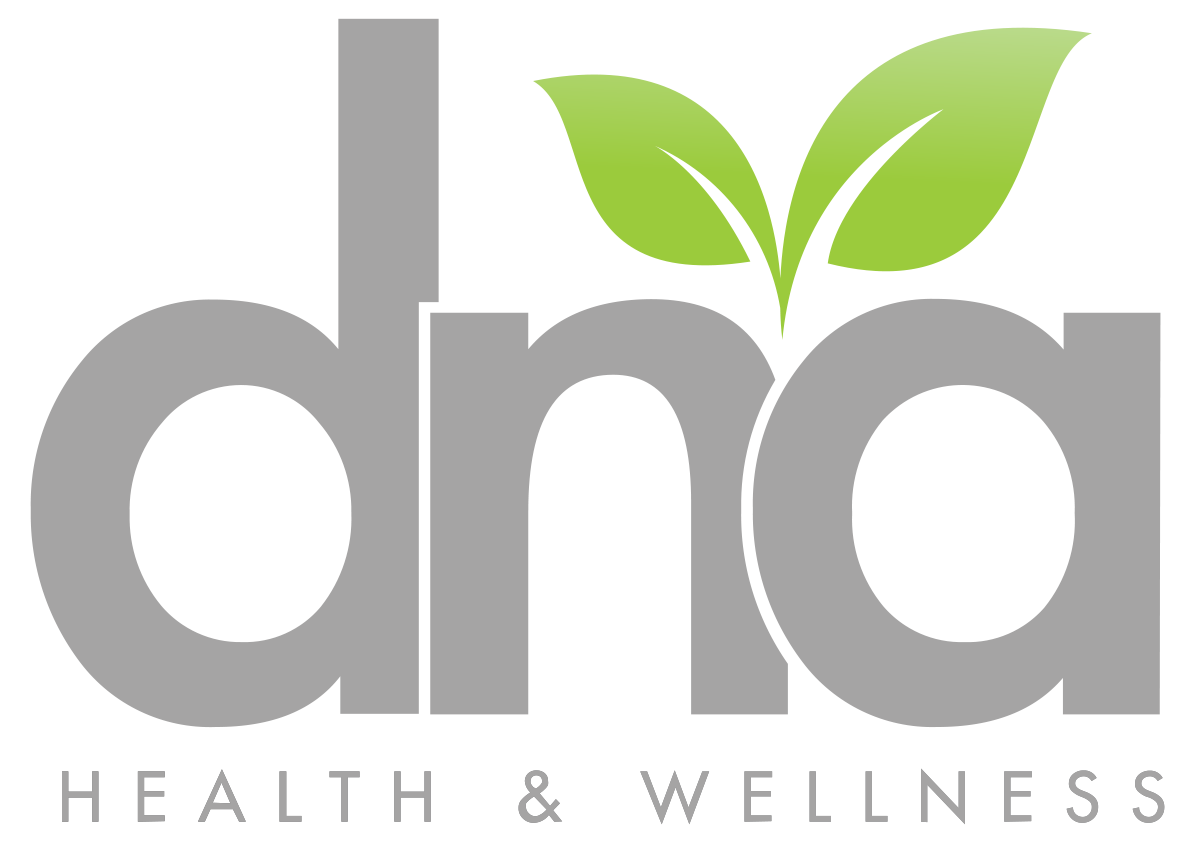33% of all deaths related to cancer could be prevented through routine screening, and early detection and treatment.
Our multi-cancer early detection test allows you to go beyond what is currently possible.
Early detection is key to the success of cancer treatment
Cancer can be detected in the earliest stages and long before symptoms develop, increasing the chance of a cure.
Routine cancer screening, the process of checking for cancer when no symptoms are present, is a proactive step towards protecting yourself and can mean that if cancer does develop, it is likely to be detected at an early stage.
Today, there are only 5 routinely performed cancer screening tests. Around 70% of cancer deaths are caused by cancers without recommended screenings.
At DNA health, we have many screening options available; from routine blood markers, through to the most sophisticated multi-cancer screening tests, detecting up to 70 cancers in a single test.

Our body is amazing at hiding disease. Regular cancer screening is essential for cancer prevention.
Those over age 21 and with a personal history or a strong family history of cancer should take routine checks.
Age is also the biggest risk factor for cancer. In fact, adults over age 50 are 13 times more likely to have cancer compared to people under the age of 50.
Cancer risk increases for everyone as they age regardless of family history. We recommend that cancer screening is incorporated into your annual health screening every year once you reach the age of 35.
The Importance of regular cancer screening
At DNA Health we have created three screening packages to help detect cancer
F.A.Q’s
Cancer screening is a process of testing individuals for early signs of cancer or pre-cancerous conditions before any symptoms are present. The goal is to detect cancer at an early stage when treatment is more likely to be effective.
Cancer screening can help identify cancers in their early stages, allowing for timely intervention and potentially improved treatment outcomes. Early detection often leads to a higher chance of successful treatment and improved survival rates.
Cancer screening recommendations vary based on factors such as age, gender, family history, and risk factors. It’s important to follow the guidelines provided by healthcare organizations and consult with a healthcare professional to determine the appropriate screening plan for you.
No, not all cancer screenings are suitable for everyone. The suitability of a screening test depends on factors such as age, gender, medical history, and family history. During your consultation we will determine which screenings are appropriate for you.
The recommended frequency of cancer screening varies for each type of cancer and individual risk factors. Our doctors will guide you on the appropriate screening schedule based on your specific situation.
While cancer screening can be beneficial, there are potential risks. False-positive results can lead to unnecessary stress and follow-up tests, and false-negative results can provide a false sense of security. Additionally, some screening tests carry certain risks, such as exposure to radiation during mammograms or complications from invasive procedures like colonoscopies.
Before undergoing a cancer screening test, consider factors such as your personal and family medical history, any existing health conditions, the benefits and limitations of the test, and potential risks. Our doctors will discuss these matters with you to make an informed decision.
Cancer screening aims to detect cancer early, but it may not necessarily prevent cancer from occurring. However, early detection can lead to more effective treatment and improved outcomes.
Preparation instructions can vary depending on the type of screening test. Some tests may require fasting, specific dietary restrictions, or changes in medication. We will provide all the details of preparatory instruction and guide you through the whole process.
If a cancer screening test detects something abnormal, further diagnostic tests may be recommended to determine the nature of the abnormality. This could involve additional imaging, biopsies, or other procedures to confirm the presence of cancer or pre-cancerous changes.
